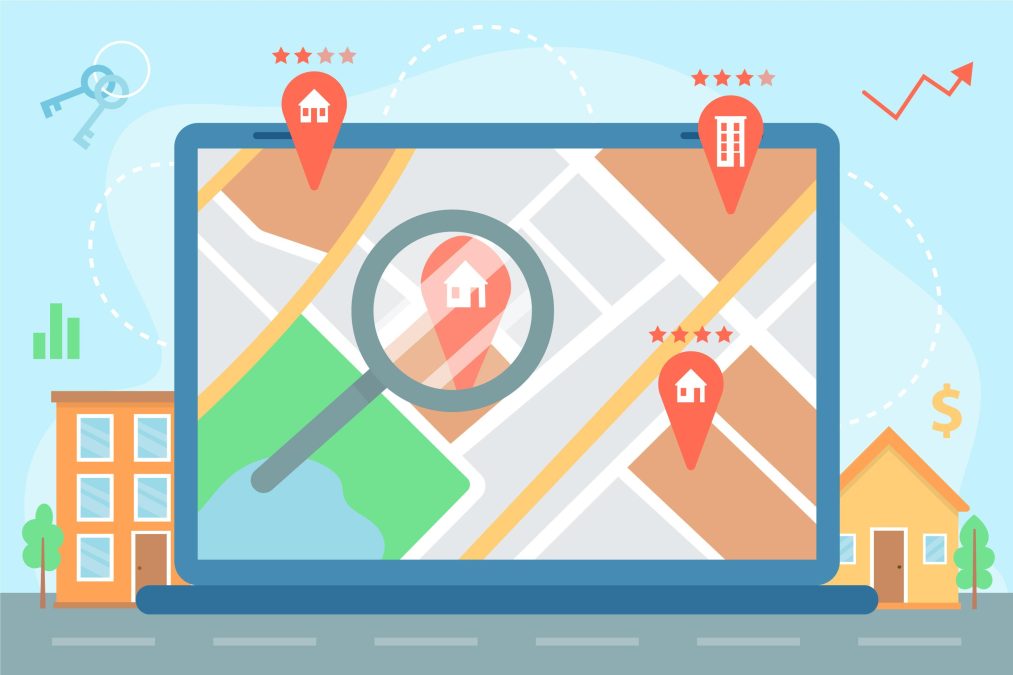Expanding your business into multiple location or regions is exciting, but it introduces significant SEO challenges. Google prioritizes local search results based on proximity and relevance. If you fail to optimize for each of your locations, you risk not ranking at all.
A single homepage or a generic services page won’t suffice. To capture traffic in every area you serve, you need a Local SEO for Multiple Locations . This requires building a structure, content, and authority tailored to each city or region where customers are searching.
Businesses that implement multi-location SEO effectively enjoy stronger visibility, increased local engagement, and consistent leads from all the markets they serve.
How Local SEO Works for Multiple Locations
Google’s algorithm looks for signals that link your business to a specific geographic area. These signals include your business address, consistent NAP (Name, Address, Phone Number) details, local reviews, and relevant location-based content.
When your website clearly indicates that you’re active in multiple locations—and each of those locations features unique, helpful content—you’re more likely to appear in Google’s local pack and organic search results for location-specific queries. Google treats each location almost like a separate business, so you need to build trust, relevance, and authority for each one.
Structure Your Website for Multi-Location SEO Success
A solid website structure is crucial for a successful Local SEO for Multiple Locations . This often involves creating a unique landing page for each location your business serves.
Each location page should have a clear and logical URL structure, such as:
yourdomain.com/locations/dallas or yourdomain.com/los-angeles-cleaning-services.
Using clean, descriptive URLs helps both users and search engines understand your site. It also enables you to build location-specific authority over time. Avoid using a generic “Contact” page that includes all locations, as this can limit your visibility in individual areas.
Optimize Each Location Page Individually
Every location page should be treated as its own SEO campaign. Customize the content to speak directly to the specific services and needs of that city or region.
Avoid simply swapping city names in existing content. Instead, tailor each page with local keywords, relevant examples, customer testimonials from the area, and important details like local service hours or staff introductions.
Make sure to include accurate NAP details (Name, Address, Phone Number) for each location and embed a Google Map to reinforce local relevance. Adding location-specific schema markup can also help search engines better understand your business’s relationship with each city.
Set Up and Optimize Google Business Profiles for Every Location
Google Business Profiles (GBPs) are essential for each physical location you operate. If you have multiple branches or offices, ensure each one has a separate GBP.
Each GBP should have the correct business address, phone number, business hours, and location-specific images. Make sure your categories, services, and descriptions accurately reflect the offerings at each location.
Managing reviews is just as important. Be sure to engage with customers and respond to reviews for each individual GBP, as Google rewards active profiles with frequent updates.
Keep NAP Information Consistent Across All Listings
Inconsistent NAP (Name, Address, Phone Number) data is one of the biggest issues in multi-location SEO. If your business name, address, or phone number varies across different platforms, it confuses both search engines and users.
Ensure that your NAP information is identical across your website, Google Business Profiles, online directories, and social media profiles. Even small inconsistencies, like using “St.” in one place and “Street” in another, can hurt your local SEO performance.
If your business has changed addresses or phone numbers, conduct an audit of your existing citations and update them accordingly.
Also reads: Boost Local Search Results with a Rapid URL Indexer
Build Citations and Location-Specific Links
Citations, or mentions of your business name, address, and phone number on other websites, are a key signal of local SEO authority. For multi-location businesses, it’s important to build citations in reputable, city-specific directories.
These include platforms such as Yelp, Apple Maps, and Bing Places, along with industry-specific directories. Additionally, consider getting listed in local chambers of commerce, regional business directories, and local news sites for added authority.
Location-specific backlinks are also crucial. For example, if your location in San Francisco is featured on a local blog or receives a backlink from a neighborhood association, this boosts your local trust and helps you rank higher in that area.
Encourage Location-Specific Reviews
Customer reviews significantly influence local rankings, with Google factoring in review quality, frequency, and quantity. Encourage your customers to leave reviews for each location’s Google Business Profile, rather than funneling all reviews to one central profile.
If possible, collect testimonials specific to each location, branch, or staff member. Display these testimonials on your location-specific landing pages to build authenticity and trust with local customers.
Leverage Hyperlocal Content for Better SEO
In addition to service pages, create blog content or resource guides that are tailored to each location. For example, you might write about seasonal maintenance tips, local events, or community-specific topics.
For instance, if you’re a landscaping company in Texas, consider creating a blog post on lawn care tips during a Dallas drought. Hyperlocal content strengthens your connection with local residents and improves your rankings for long-tail, location-based keywords.
Monitor SEO Performance by Location
To track the success of your Local SEO for multiple locations strategy, it’s important to monitor SEO metrics separately for each location. Use tools like Google Search Console to analyze performance for each location-specific landing page, focusing on impressions, clicks, and queries that drive traffic.
Google Business Profile insights can also show how often each location appears in local searches and how many interactions—such as calls or direction requests—occur.
Using Google Analytics, create custom segments to break down traffic based on location-specific pages, helping you compare performance across cities and identify areas for further optimization.
Overcome Common Multi-Location SEO Challenges
Multi-location SEO comes with challenges, such as spreading resources too thin. Make sure each location has enough attention in terms of content creation, review management, and SEO optimization.
Avoid using duplicate content across location pages. Search engines favor unique, tailored content for each area. Be mindful of keyword cannibalization—don’t use identical target keywords on every page. Instead, adapt your keywords to fit the local search behavior in each region.
Scale Your Local SEO Strategy Across Multiple Locations
Ranking in multiple cities isn’t just about adding more keywords to your pages. It’s about building a strategy that fosters trust, relevance, and visibility across all the areas you serve.
With the right website structure, localized content, optimized profiles, and consistent citation building, you can dominate local search results across every city you operate in. When done right, multi-location SEO can become a powerful growth engine, generating traffic, leads, and conversions from every city your business serves.
If you need help managing local SEO for multiple locations, BPCustom is here to assist. We specialize in helping businesses expand their online presence and ensure each location gets the visibility it deserves.
Interesting Reads
White Label Local SEO that Scales your Agency Fast





